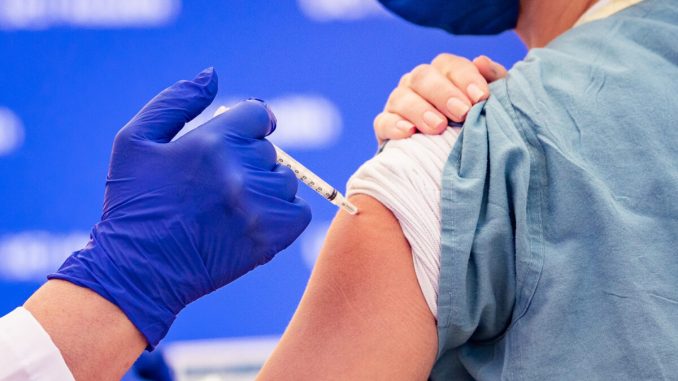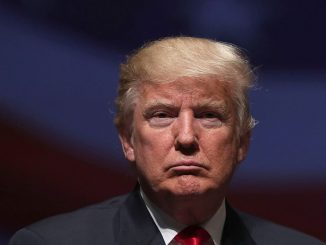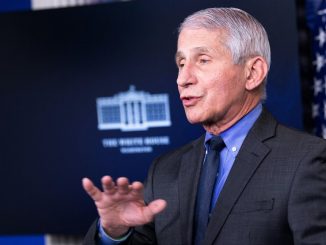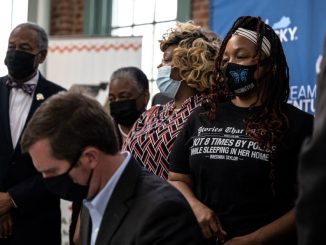

Orange County’s proof-of-vaccination plans have been temporarily paused, health officials said during an April 27 board of supervisors meeting.
The county was previously planning to provide the public with an optional “vaccine passport” through a smartphone app.
The initiative will not be carried forward until supervisors vote on accepting an amended contract with Composite Apps Inc. The board could decide to remove the electronic vaccine validation option, or reject the contract altogether.
During an April 13 meeting, supervisors were faced with 215 public commenters who shared concerns about the system.
The rush of comments came after Orange County Health Care Agency director Dr. Clayton Chau said the agency planned to create what was originally called a “vaccine passport.” The voluntary system would allow residents to request a scannable QR code on their smartphone to show businesses who required proof of COVID-19 vaccination.
The board is likely to continue its discussion on the vaccine verification system during its May 11 meeting.
During the April 27 meeting, Supervisor Don Wagner pushed Chau, asking why the county would spend $3.8 million in taxpayer funds on a contract involving the verification program through the county’s Othena app when the county could just mail a QR code on a piece of paper to residents who request them.
“What Othena has got to do is generate a QR code,” Chau told the board. “And people who want it will have to request for it, we’re not pushing it out for everybody. Once you request for it, you have two options. One is going to be electronic, or we can send you a card, whichever one you prefer.”
Replied Wagner: “Why not just eliminate option one? [A resident] asks for it, we generate it, we send you a card, end of business. And it’s a whole lot cheaper for the public. And it’ll eliminate all or the vast majority of those concerns. It’s win-win.”
Chau said the decision is not his to make.
“I’m not in the authority to make that policy,” Chau said. “Because from a healthcare agency perspective of a patient, if they come to me and said, ‘Hey, I want my record this way.’ I have to comply. Simple as that.”
Chau also noted that with the vaccine verification on a digital platform, the QR code will change every time it is scanned, so that it cannot be duplicated, unlike a piece of paper with the code printed on it.
Supervisors again faced public speakers, this time about 65, who argued that the “passport” would take away freedoms from residents who make a personal choice to not be vaccinated. They also accused the verification program of tracking residents.
“Is there any intention of tracking folks?” Wagner asked Chau, who said no. Wagner continued: “In the vaccine we heard about an injection of a tracking device, is that being done anywhere?”
Replied Chau: “There is not a vaccine with a tracking device imbedded in it that I know of exists in the world.”
Supervisor Lisa Bartlett had a different approach on the matter, saying that people need to be worried about smartphones tracking them, not the QR code.
“There’s no track and trace,” Bartlett said. “It’s not big government following them around. I think people need to realize that relative to if they have a smartphone, they’re already getting tracked…they can track if you’ve got a car, it’s got a black box in it. The insurance companies and the auto manufacturers, they can figure out where your vehicle is if you’ve got it stolen, for instance.”





Be the first to comment